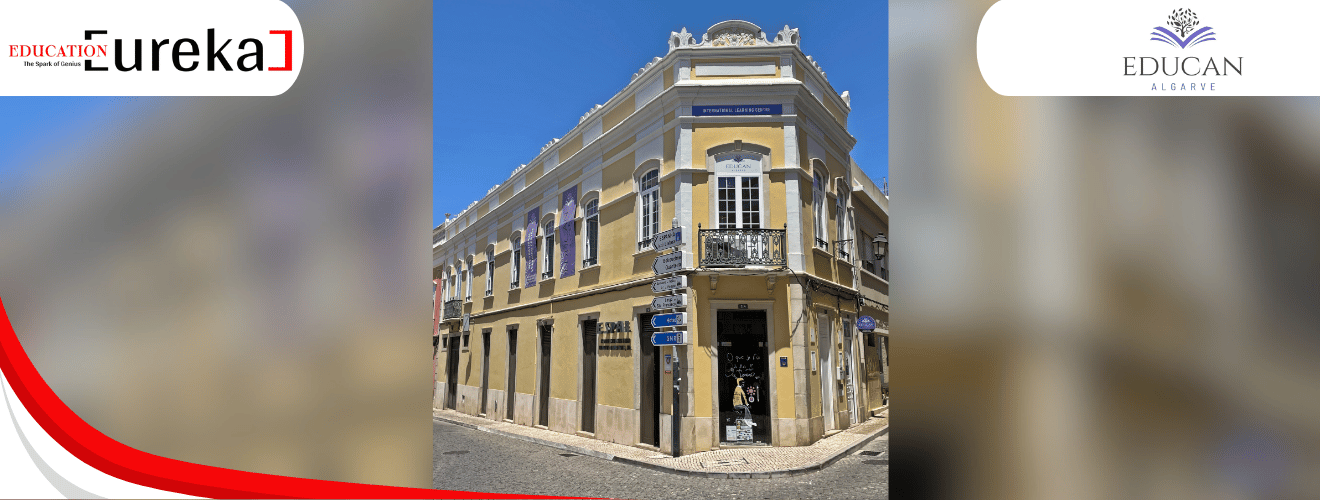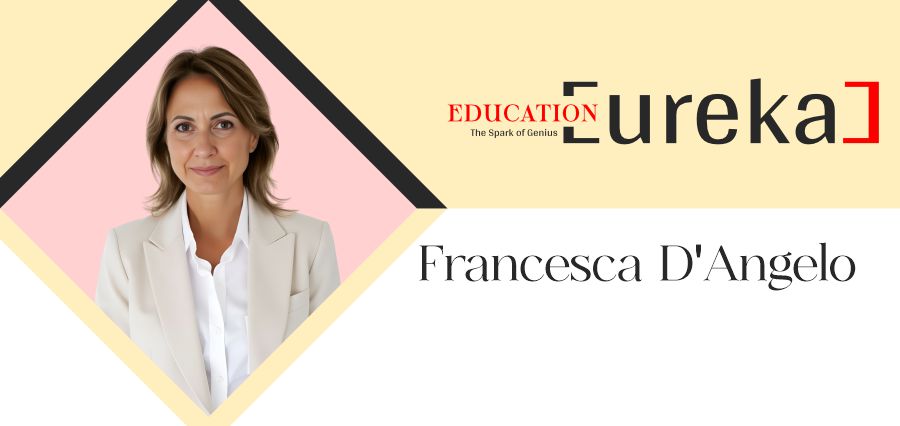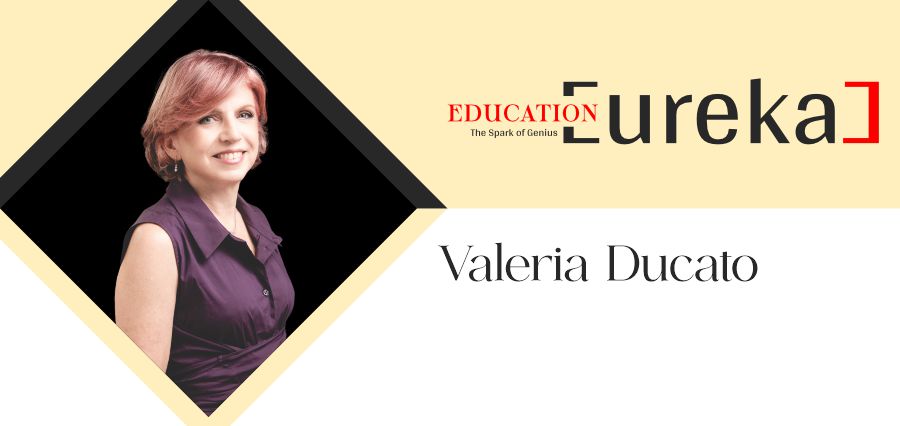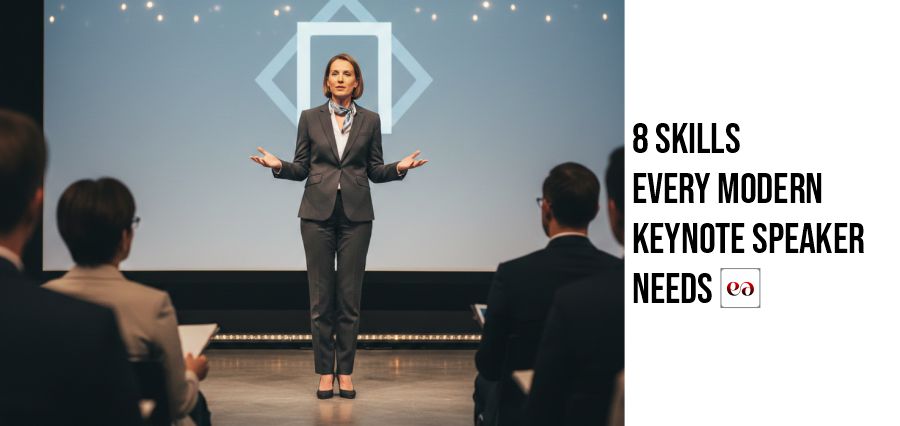
Finding the right educational environment that nurtures both academic achievement and cultural identity can be a real challenge for families in today’s interconnected world. Many parents worry about balancing the need for a globally recognized curriculum with the importance of maintaining a connection to local culture and community. At Educan, Algarve in Loulé, Algarve, Portugal, this challenge is met with a thoughtful, bilingual approach that brings the best of both worlds to every student.
The centre follows the prestigious British curriculum, iPrimary to A-Levels by Pearson Edexcel, and proudly holds accreditation as a Pearson Examination Centre. This ensures that the academic standards are high and aligned with international benchmarks, giving students a solid foundation for future success anywhere in the world. Lessons are delivered in English, reflecting the British curriculum’s traditions and rigor, and preparing students for global opportunities.
But it’s not just about academics. At Educan, Portuguese plays a vital role in daily life. Social activities, community interactions, and local trips are conducted in Portuguese, allowing students to immerse themselves in the rich culture of the Algarve. This dual-language approach fosters both linguistic fluency and a strong sense of belonging, helping students to feel at home in their local community while also preparing them for an international future.
For the person seeking a balanced education for their child, one that values both global academic standards and local cultural roots, Educan’s International Learning Centre offers a unique and enriching solution. Here, the challenge of blending world-class education with local identity is not just met, but celebrated.
Educan defines and implements student-centered learning in its micro-classes by prioritizing each learner as the core of the educational experience. The International Learning Centre adopts a philosophy that merges Inquiry-Based Learning, a model that nurtures curiosity, critical thinking, and problem-solving, with guided instruction, which offers structure, direction, and academic rigour. This balanced approach ensures that children are not passive recipients of knowledge, but rather active participants in their own learning journeys.
The institution deliberately moves away from traditional, teacher-led models, instead creating an environment where students’ voices, interests, and individual learning styles shape classroom experiences. Learners are encouraged to work independently or in small, collaborative groups, exploring ideas, taking initiative, and making meaningful choices. This process helps them develop the confidence and resilience necessary for lifelong learning.
Through this approach, Educan fosters not only academic growth but also the development of key personal attributes such as autonomy, responsibility, empathy, and self-reflection. Educators serve as facilitators and mentors, observing, guiding, and challenging students at the right moments to ensure each child reaches their full potential while maintaining a strong sense of ownership over their learning.
This model cultivates a culture of mutual respect, engagement, and purpose, empowering every child to thrive in a dynamic, supportive, and internationally-minded learning environment.
Educan employs a range of innovative and intentional methods to foster critical thinking and student autonomy within its child-centred, bilingual, and inquiry-based learning environment. The institution’s practices are carefully designed to encourage students to become active explorers, thinkers, and decision-makers.
One of the most powerful aspects of the Educan approach is its transformational impact on students who have previously experienced traditional educational settings. Many learners arrive at the school feeling overwhelmed or uncertain, particularly as they transition from more rigid, teacher-led classrooms to a child-centred environment. It is not uncommon for both students and their families to question whether this model will work for them.
However, what is consistently observed is that within just a few months, both students and their families begin to witness exponential growth, not only academically, but also in confidence, motivation, and self-belief. A particularly inspiring example involves a Year 6 student who joined Educan a couple of years ago. When he arrived, he struggled with reading and held the firm belief that he would never be able to read because he was dyslexic. His experience in traditional schooling had left him feeling limited by a label and disengaged from the learning process.
Through the school’s inquiry-based, personalised approach, the student was empowered to take ownership of his learning. Instead of focusing on deficits, educators helped him discover strategies that worked for him, integrating phonics, visual learning tools, and one-on-one support, all while encouraging his curiosity and creativity. He worked independently and collaboratively in small groups, where his ideas were valued and he was never rushed or compared to others.
Today, that same student reads fluently and confidently. Perhaps even more powerful than the academic progress is the change in mindset: the word “dyslexic” has been erased from his personal dictionary. He no longer sees himself through a limiting label but as a capable, thriving learner with unique strengths. This is just one of many examples of how Educan’s model does not simply teach children; it transforms them, helping them unlock their potential and rewrite their own stories.
Educan recognizes diversity not as a challenge to overcome, but as a strength to harness. The institution’s personalized curriculum is intentionally crafted to embrace and leverage the unique backgrounds, experiences, and perspectives that each student brings to the learning environment.
Students at Educan come from a wide range of cultural, linguistic, and educational settings. Rather than viewing these differences as barriers, the school sees them as powerful tools for learning. From the outset, the staff prioritizes understanding each child’s story, where they come from, their previous learning experiences, the languages they speak, and what excites or challenges them.
Instead of expecting students to conform to a pre-determined mold, Educan uses their varied backgrounds as a springboard for deeper engagement and understanding. For instance, a student who has moved frequently might contribute adaptability and global awareness to class discussions, while a student with strong ties to local Portuguese culture may enrich bilingual activities with authentic insights.
These personal histories are not only valued; they are integrated into the learning process itself. Teachers at Educan encourage projects and discussions that draw on students’ real-life experiences, allowing them to connect new knowledge with what they already know in meaningful and motivating ways.
By treating each learner’s background as a lever for growth, Educan creates a learning environment that is not only inclusive but transformative, helping every child feel seen, respected, and empowered to thrive1.
Educan’s International Learning Centre places a strong emphasis on nurturing responsibility and teamwork as essential lifelong habits within its learning environment. While all classes share common learning objectives, the institution values flexibility and teacher autonomy, allowing educators to select strategies that best address the unique needs of their students. As a result, various systems and approaches are implemented across classes to foster a sense of ownership and collaboration among learners.
Collaborative projects are central to Educan’s methodology. Students frequently engage in small, mixed-ability groups to research, problem-solve, create, and present together. These projects extend beyond academic content, requiring participants to plan, negotiate, make shared decisions, and hold each other accountable. Through these experiences, students develop the ability to contribute effectively, listen actively, compromise when necessary, and step into leadership roles as required.
Beyond project-based learning, some classes adopt team point systems or other classroom-specific frameworks to promote collective responsibility. These systems reward behaviors such as cooperation, initiative, peer support, and shared goal-setting. Whether through earning points as a group, rotating team roles, or reflecting on group dynamics, students are consistently encouraged to take responsibility not only for their own actions but also for the success and well-being of the group.
Additionally, teachers at Educan may employ check-in and check-out routines, facilitate student-led discussions, or establish peer feedback systems. These strategies help to build a classroom culture rooted in trust, accountability, and mutual respect. The variety of approaches ensures that responsibility and teamwork are cultivated not through rigid rules, but through meaningful, context-driven practices tailored to each class.
Whilst academic achievements such as iGCSE and A-Level exam results provide valuable benchmarks, and Educan is certainly proud of its students’ performances, the school believes that true success extends far beyond test scores. At Educan, success is measured through the daily growth observed in students: in their words, their actions, and the meaningful feedback received from students and their families.
Educan listens closely to what students say about their own learning journeys, including how they view themselves as learners, their confidence levels, and the extent to which they take ownership of their goals. The school observes how students interact with others, how they face challenges, and how they develop into curious, responsible, and resilient individuals.
Feedback from families is considered equally important. Families are regarded as partners in the educational journey, and their reflections often capture the deeper, more personal impact of the student-centered model. For example, one family recently wrote to Educan as their daughter prepared to leave the school to pursue her academic dreams. They expressed gratitude for the support, dedication, and care shown by the staff throughout her time at Educan, highlighting the significant role teachers played in her academic and personal growth.
Messages like these are regarded as the most meaningful indicators of success at Educan. They reflect outcomes that cannot be measured in numbers: a child who feels seen, supported, challenged, and ready to embrace the world with confidence. This, the school believes, is the true outcome of a personalized, student-centered education, the outcome it values the most.
Community engagement occupies a fundamental place in the educational experience at Educan. The integration of children into the local community and their exposure to Portuguese culture are not merely encouraged but are deeply embedded in the institution’s core values. Educan operates under the belief that education extends beyond the classroom and that meaningful learning occurs when children interact with the world around them.
Educan’s educators and leadership consider it a missed opportunity for students to live in a country without embracing its culture and, whenever possible, its language. Therefore, the school strives to ensure that students are not isolated from their environment. Instead, students are encouraged to become active participants in the local community. This approach involves creating opportunities for students to engage with local traditions, participate in community projects, and connect with Portuguese-speaking peers.
Through these connections with the local culture, students at Educan develop a greater sense of empathy, adaptability, and global awareness. The engagement also enhances their sense of belonging and helps them build lasting relationships beyond the school setting. In the Loulé area, where Educan is situated, students have access to a wide range of sports and group activities, further supporting their social development. Ultimately, community engagement at Educan fosters well-rounded individuals who are not only academically prepared but also culturally aware and socially responsible.
Educan integrates additional language classes such as Portuguese, Mandarin, and Russian into its curriculum with a flexible and student-centered approach. Portuguese, along with English, particularly for students who speak English as a second language, occupies a central position as a core subject. This emphasis is motivated by the institution’s commitment to helping students connect with their host country and become active participants in the local culture and community.
Recognizing the value of multilingualism in a globalized world, Educan offers a range of supplementary language options, including Portuguese, Mandarin, Russian, German, Spanish, and French. These languages are available either as foundational activities within language clubs or as formal academic pathways through iGCSE and A-Level qualifications, depending on each student’s interests and academic objectives. This adaptable structure enables students to explore and enhance their language skills in ways that support both their personal growth and their future academic ambitions.
Educan has consistently prioritized small class sizes as a fundamental aspect of its educational philosophy. Despite encountering logistical obstacles, including limitations in space, resources, and staffing, the institution has remained steadfast in its commitment to this approach. The educators at Educan, many of whom have previously worked in environments with large class settings, collectively recognize that larger groups hinder personalized attention, weaken student-teacher relationships, and ultimately diminish the quality of education.
To address these challenges, Educan has set a strict cap of eight students per class. This policy ensures that each learner benefits from tailored support and that teachers are able to develop a deep understanding of individual students, including their learning styles, motivations, and areas requiring assistance. By maintaining such small groups, Educan affirms that this structure is not merely a preference but a necessity for delivering the high-quality, student-centered education it is known for.
At Educan while the majority of students flourish in the micro-class environment, the school recognizes that some may eventually consider a move to larger educational institutions. To facilitate this transition, Educan employs a thoughtful and personalized approach. The school psychologist assumes a central role, addressing not only emotional and social challenges but also providing career guidance and future planning sessions.
Although transitioning to a larger school is not a typical path for Educan students, the institution is prepared to oversee the process. The psychologist collaborates closely with both students and their families, identifying any concerns at an early stage and ensuring that all parties feel supported and well-informed. Through open communication, practical guidance, and emotional support, Educan helps prepare students for a smooth and confident transition, should they choose a different educational setting in the future.
Staff Professional Development: Educan places great importance on the continuous professional growth of its staff. To ensure educators remain at the forefront of innovative teaching practices, the institution partners with Pearson to provide structured Continuing Professional Development (CPD) training. These tailored opportunities enable teachers to stay current with best practices, curriculum developments, and modern pedagogical approaches.
Fostering Team Collaboration and Wellbeing: In addition to formal training, Educan’s prioritises team-building and social activities. These initiatives cultivate a cohesive, supportive, and friendly working environment where collaboration and open communication thrive. By nurturing strong relationships among team members, the organisation ensures that everyone works together toward the shared goal of delivering the best possible educational experience for students.
Educan’s is dedicated to advancing its educational model through thoughtful, student-centred strategies to address the challenges of international education. The institution’s approach is grounded in adaptability, cultural integration, and a commitment to academic excellence, all while maintaining core values such as small class sizes, personalised learning, and strong community connections.
Looking ahead, Educan’s intends to strengthen its integration of real-world skills, critical thinking, and multilingual learning, ensuring students are well-prepared for a globalised world. The school is also exploring methods to further embed technology in meaningful and balanced ways, enhancing educational outcomes without diminishing the human connections that characterise its classrooms.
Additionally, Educan’s continues to collaborate with Pearson and other educational partners to remain aligned with international standards and emerging trends. The school aims to broaden opportunities for cross-cultural experiences, interdisciplinary learning, and future-focused subjects such as environmental literacy and global citizenship.
Ultimately, Educan’s evolution is driven by a central principle: prioritising students and equipping them with the skills, confidence, and mindset to thrive in a rapidly changing world.
Discover more insightful articles on education trends, exclusive interviews, in-depth magazines, and the latest educational news—explore now on the Education Eureka website.






Welcome to the future of digital storytelling, where creativity meets innovation. We’re not just a magazine platform; we’re a team of passionate visionaries committed to transforming how stories are shared, celebrated, and experienced in the digital age. Join us as we inspire, inform, and redefine the world of digital magazines.
© Copyright 2025 | educationeureka | All Rights Reserved.